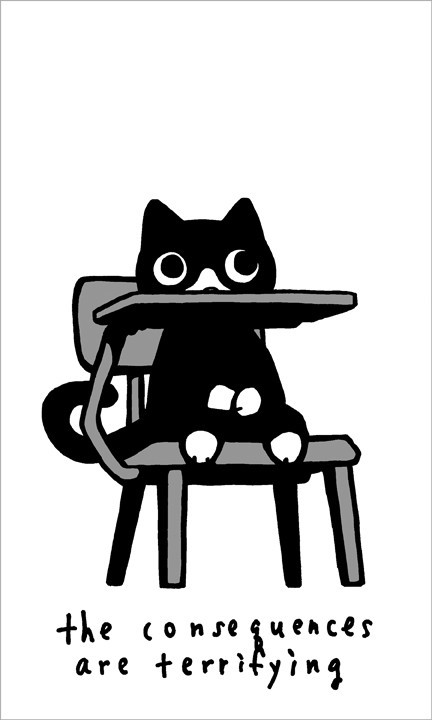Gently poking your brain with a stick of ethics
The Pinky Show tackles globalization, imperialism and psychoanalysis with charm and heart
“I want to be able to understand things,” blinks patient Pinky.
With over seven million views worldwide, The Pinky Show is an American non-profit educational organization producing short animated videos and a recent book I Want To Punch Your Face about the effects of violence.
By “gently poking your brain with a stick,” a cartoon cat will courteously inform you on topics such as globalization, imperialism and psychoanalysis.
In a recent phone interview, “Bunny,” one of the four anonymous cat characters, mentioned their efforts are focused on becoming a more “compassionate and fair world for everyone.” Thus inspires the upcoming multi-media installation of The Pinky Show: Class Treason Stories (excerpts), exhibited at the University of Winnipeg Gallery 1C03.
Specifically, the exhibit will explore the nature of education and knowledge, promoting intellectual curiosity of information that has been previously ignored or excluded from mainstream discussion.
“Part of critical thinking is just deciding it’s important. Our innate ability to think critically can get broken by a lot of schooling,” Bunny explained.
To give a waft of their stance on academics, Bunny referenced their short film Scary School Nightmare.
“The pupil is thereby schooled to confuse teaching with learning, schooled to confuse grade advancement with education, schooled to confuse a diploma with competence,” Bunny said.
But the connection between changing opinions through education and actually making a change in the world can get foggy.
“Would it really matter if it were Fred rather than Bob who believed that democracy was the worst form of government? What if Fred were to wake up one morning and think he believed that, forgetting that it was actually the belief of his friend Bob?” actor/playwright Wallace Shawn cynically states in his monologue The Fever.
“Not all opinions are equal; there are some dominant perspectives that have more power behind them,” Bunny explained.
People can put a lot of effort into conservation by taking shorter showers, but ultimately individual efforts are not systemically helpful unless you challenge the institutional problems.
Precisely the point of the Class Treason Stories (excerpts) exhibit, to inquire about the transformations people could undertake in order to move toward a genuinely ethical state of being.
The organization’s diverse experience ranges from working with the Center for Hegemony Studies in Honolulu, Hawaii to public presentation exhibits like Picturing Politics: Artists Speak Truth to Power at the Arlington Arts Center in Arlington, Virginia and Encounter on Radical Education in Ljubljana, Slovenia.
“If you don’t know anything about a place’s history, culture, tradition, symbolism – probably you’ll just end up interpreting it according to everything you already believe. Which might be interesting or not, but mostly you’ll be wrong,” Bunny concluded.
Published in Volume 64, Number 11 of The Uniter (November 12, 2009)








